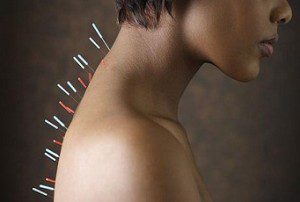By Adam Cantor, MS LAc
Guest Writer for Wake Up World
Every now and again, when I tell someone that I’m an acupuncturist, I find myself in a finger-pointing debate about whether acupuncture is voodoo or truly medicine. How could so many people be so ill-informed about Chinese medicine?
The problem certainly doesn’t stem from the thousands of years of clinical and anecdotal evidence speaking to the efficacy of acupuncture (or my many happy patients) but rather from the design of the modern studies conducted in the West that simply aren’t suited to this wonderful and versatile modality of treating mankind. The Western medical paradigm of the double-blind university study is not the appropriate lens with which to evaluate acupuncture since you need a control, and “sham acupuncture” isn’t a real placebo as can be instituted in reviews for pharmacological studies.
[pro_ad_display_adzone id=”110028″]
Any time you touch the human structure, neurochemistry responds. Is that the true “placebo effect?” Further, acupuncture is a medicine that is tailored to each patient’s mental and physical manifestation(s) of their illness/condition and isn’t as simple as protocol “X” for condition “Y,” or “always use this exact point palette for this diagnosis.”
Due to the structure of Western medical studies, protocols are standardized for control purposes and this obviously limits efficacy for acupuncture treatment. Acupuncturists are forced to oversimplify their medicine to conform to the Western paradigm – a folly practice from the start.
Have the naysayers considered that pharmacology and Western medical iatrogenic incidents cause more than 750,000 deaths each year?
If patients receiving acupuncture report improvement, does it truly matter if we can fit it into a specific study, approach or model to prove it works? The bottom line, in my eyes, is if people are feeling better from their treatments and can live healthier and more productive lives.
The World Health Organization supports acupuncture for a variety of illnesses, and that’s just a fraction of what it can actually do.
If they (the WHO) support it, if patients report improvement, if it’s been vetted via rigorous clinical observation for more than 3,000 years, what drives people to assume that it needs to conform to this relatively new (comparatively speaking) Western style of study to be considered effective?
I always find it interesting when people say, “I tried acupuncture but it didn’t work.” I inquire if they ever saw a Western physician who didn’t help them. Does that mean they should write off all Western medicine as “bunk” simply because that one physician didn’t help them or because they saw this doctor once? Does that make all Western medicine ineffective? Of course not!
Many conditions require multiple visits, especially those of a chronic nature or those that necessitate lifestyle change for significant improvement, and no two clinicians/physicians are exactly the same. There’s a great old joke – what do you call the physician who scored lowest on their exams in medical school and lowest on their boards? Yup, we still call them a doctor.
Not all physicians are of the same caliber and the same rule applies to acupuncturists. For the studies about acupuncture we read in the West, how do we know if these clinicians are any good? How do we control for that factor other than saying that they were able to pass their board exams?
Acupuncture certification exams, conducted by the National Certification Commission for Acupuncture and Oriental Medicine, are taken on a computer terminal today and in no way reflect one’s actual skill with the tools of the craft or their ability to achieve results in the treatment room. Fortunately, we must also complete a three-year master’s degree program in acupuncture (very hands-on) but again, not all programs are equal.
How is this dynamic and fluid medicine to flourish when locked into a box of treatment for a given condition and not allowed to adapt as needed on a visit-by-visit basis? How much patient palpation is used in these studies in order to ensure that an effective acupuncture point is utilized and not just the textbook point found by landmark measurements? Would a massage or a chiropractic adjustment be as effective if they weren’t allowed to palpate muscles and bones in order to find the “right point” instead of just the textbook point?
Fortunately, a handful of long-term studies, particularly those focused on pain management, have been in the news recently, helping the public to begin seeing the bright light of this wonderful medicine. U.S. News & Report recently covered a meta-analysis of 29 studies totalling nearly 18,000 patients and conclusively showed that when it comes to pain, acupuncture is indeed highly effective.
The most exciting part is, this is only the tip of the iceburg in terms of what acupuncture can really do. I mention this study because regardless of how wonderful this should be for Chinese medicine, there are still those people out there trying to pick the study apart, saying either it was biased or points too strongly toward the “placebo effect.”
Simply put, acupuncture does not fit into the Western model of evaluation, and the lack of “acceptable proof” produced by ill-conceived or poorly executed Western studies is inconsequential when it comes to real patient care. Quality of life and improvement of the patient’s complaint is what keeps them coming back for acupuncture treatment, not the latest study or analysis. It is my sincere wish to one day have every naysayer experience first-hand just how wonderfully safe and effective this traditional healing art can be.
Previous Articles By Adam
About the author:
Adam Cantor is an NCCAOM nationally certified Acupuncturist licensed in New York State. After earning an MBA in finance and a brief stint in the business world, it was time for a change. And as a lifelong martial artist and certified personal trainer, Adam was drawn to working with the human body. While training in martial arts he sustained an injury and found himself in the office of an acupuncturist. In awe of how quickly the acupuncturist was able to heal his injuries, Adam decided to pursue a Masters of Science in Acupuncture at the Tri-State College of Acupuncture, graduating with honors.
Adam later travelled to China and studied at the Beijing Traditional Chinese Medicine University, one of China’s top medical colleges. Back in the U.S., Adam interned with the senior acupuncturist who healed his injuries, studying how to combine bodywork (tui na) with acupuncture for acute traumatic injuries and sports medicine – as taught by Tom Bisio and Frank Butler, the founders of the Zheng Gu Tui Na modality.
Adam believes the beauty of Chinese medicine is its inherent ability to treat the whole person — mind, body and spirit, together.
[pro_ad_display_adzone id=”110027″]
Disclaimer: This article is not intended to provide medical advice, diagnosis or treatment. Views expressed here do not necessarily reflect those of Wake Up World or its staff.







